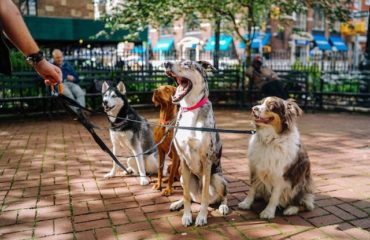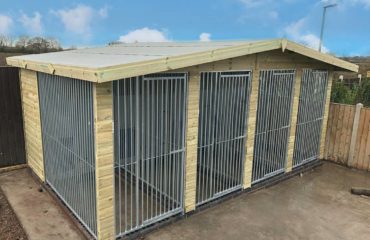How to Kennel Train an Older Dog – Step By Step Guide

How to Kennel Train an Older Dog
Training an older dog may seem like a challenge, but it’s never too late to teach new habits. In fact, over 52% of household dogs are aged 7 or older, showing that pet owners frequently introduce training routines to senior dogs. Whether you’re welcoming an older rescue or helping your lifelong companion adapt to new habits, kennel training is a fantastic way to provide comfort and security.
With the right strategies and a bit of patience, how to kennel train an older dog becomes a manageable and rewarding process. Let’s explore helpful tips, detailed steps, and answers to common questions so you can make this journey smooth and enjoyable for both you and your pet.
Is It Too Late to Train My Older Dog?
The short answer is: no, it’s not too late! While older dogs may take more time to adjust compared to puppies, they are absolutely capable of learning. Many senior dogs thrive with proper training that provides structure and routine.
For instance, kennel training older dogs not only offers a safe space but also reduces anxiety, especially in unfamiliar situations. Senior dogs often appreciate a cosy, predictable environment that helps them feel secure. With patience and consistent effort, you’ll see how quickly your dog adapts to their kennel.
Why Is It Important to Kennel Train Your Older Dog?
Kennel training offers numerous benefits for senior dogs, from reducing stress to aiding house training. Here’s why it’s worth the effort:
- Provides a Safe Haven: Dogs of all ages need a quiet, comfortable space to retreat to when they feel overwhelmed. A kennel serves as their personal sanctuary.
- Reduces Anxiety: Senior dogs often face stress due to changes in routine, ageing, or health issues. A kennel provides consistency, helping them feel more secure.
- Aids in House Training: Kennels are excellent tools for teaching boundaries and reinforcing proper bathroom habits.
- Supports Travel and Transitions: Whether you’re moving home or travelling, a kennel-trained dog feels safer and calmer in new environments.
By focusing on how to house train an older dog through kennel use, you provide your furry friend with structure and stability during their golden years.
Tips for Training Older Dogs
Start by “Untraining” Old Habits
Older dogs may have ingrained habits that don’t align with your goals. Before introducing the kennel, focus on redirecting these behaviours toward positive alternatives. For example, guide them toward the kennel during times of rest and reward them for complying.
Stick to a Consistent Routine
Dogs thrive on structure, and senior dogs are no exception. Set regular times for feeding, play, and rest, incorporating kennel time into their daily schedule. This predictability helps your dog feel at ease while adapting to new routines.
Make the Kennel Inviting
Encourage your dog to explore the kennel by leaving the door open and placing treats, toys, or a soft blanket inside. Positive reinforcement builds trust and comfort, making the kennel a welcoming space.
Be Patient with the Process
Training techniques for older dogs require patience and gradual progress. Start with short kennel sessions, gradually increasing the time as your dog becomes more comfortable.
Use the Kennel for Rest and Training
The kennel isn’t just a safe space—it’s a tool for teaching boundaries. Over time, your dog will understand that the kennel is a place for relaxation, not punishment.
Step-by-Step Guide: How to Kennel Train an Older Dog
1. Select the Right Kennel
Choose a kennel that’s large enough for your dog to stand, turn around, and lie down comfortably. Avoid kennels that are too spacious, as a cosy fit helps dogs feel secure. See our full range of kennels here.
2. Position the Kennel Strategically
Place the kennel in a quiet, low-traffic area of your home. Ensure it’s in a spot where your dog can feel included but not overwhelmed.
3. Create Positive Associations
Introduce the kennel gradually by leaving treats or toys inside. Encourage your dog to explore it without pressure, rewarding them for any interaction. This step is critical in how to train a mature dog to see the kennel as a safe, enjoyable space.
4. Incorporate Mealtime in the Kennel
Serve your dog’s meals in the kennel to strengthen positive associations. This builds trust and helps your dog view the kennel as a rewarding environment.
5. Close the Door Briefly
Once your dog is comfortable entering the kennel, practise closing the door for short periods. Stay nearby to reassure them and gradually increase the duration as they adjust.
6. Extend Kennel Time
Gradually work up to longer kennel sessions, especially during times when you’re busy or away. Use long-lasting treats or toys to keep your dog engaged. Over time, the kennel will become their go-to space for rest and comfort.
FAQs About Kennel Training an Older Dog
Can older dogs be trained?
Absolutely! While senior dogs may need extra patience, kennel training older dogs is entirely achievable with the right approach.
What size kennel is best for my dog?
Choose a kennel that’s snug but allows your dog to stand, turn, and lie down comfortably. Too much space can make dogs feel insecure.
How do I introduce the kennel?
Leave the door open and place treats or toys inside. Reward any interest your dog shows and let them explore at their own pace.
Are there different kennel styles for older dogs?
Yes! Wire kennels offer visibility, while enclosed designs mimic cosy dens. Choose the style that best suits your dog’s preferences.
How can kennel training help with obedience?
Kennel training establishes structure, creating a secure base for teaching other commands and routines.
What does Benchmark Kennels offer?
Benchmark Kennels provides high-quality, durable options for dogs of all ages. With various styles and sizes, they make training easier and more comfortable.
How to Kennel Train an Older Dog
Training an older dog may take time, but the rewards are worth it. Learning how to kennel train an older dog not only provides them with security but also strengthens your bond. With patience, consistency, and positive reinforcement, your senior dog will adapt to their new routine confidently.
If you’re searching for reliable kennels to aid in training, check out Benchmark Kennels. Their high-quality designs offer the perfect balance of comfort and durability, making them ideal for dogs of all ages.




